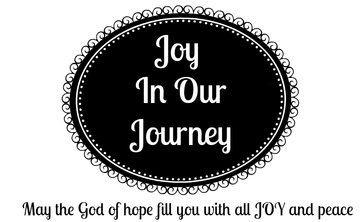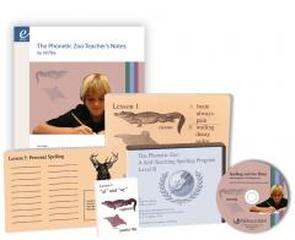|
The Institute for Excellence in Writing designs and sells language arts materials primarily authored by Andrew Pudewa. For most homeschooling families who have been teaching their children at home for more than a couple of years, many parents have heard of this wonderful company which provides much insight into the education of language arts for children. A special "thank you" goes out to IEW for providing me with a copy of their Phonetic Zoo program for my review. Not many of us on the TOS Crew were selected to review this program, and because teaching spelling has been very important to me over the years, I was very interested in seeing what Phonetic Zoo had to offer to my family. I must admit that even though I think IEW's writing materials are excellent, I was a bit wary about receiving and using Phonetic Zoo in our home. The main reason for this uneasiness is that we have been using a highly successful spelling program in our home for the last nine years - and it has worked wonderfully! My daughter who has been old enough to participate in our local county spelling bee has placed 8th, 2nd, and 1st place/grand champion in the three years in which she has competed - arriving at those levels among over 4,000 of her peers each year. She finished her competitive years with her first place finish and won a laptop computer, printer, and a ton of accessories! My second daughter will be old enough for the spelling bee later this winter, and she, too, is an excellent speller. Because we are actively studying the county spelling bee list words right now, I wasn't sure we could find the time to fit in a second spelling program as well. Fortunately, IEW provides a free spelling placement test on their website, so I was able to have my daughters take the placement test first before letting IEW know which level to send our way. Would you believe that my oldest daughter got all of the words correct on the placement test? At almost 13 years of age, she technically probably would have placed out of Phonetic Zoo, although since there is always more to learn about spelling, we knew that she would go ahead and work on Level C. My youngest daughter at age 10 only had three or four words spelled incorrectly, even for Level C, which is their highest level of spelling. Each level of The Phonetic Zoo spelling program includes: • 5 audio CDs (Level C has 6 CDs) • Spelling and the Brain and Introduction to The Phonetic Zoo DVD with the following: - Spelling and the Brain video seminar - Introduction to The Phonetic Zoo video - The Phonetic Zoo teacher’s notes PDF file • Lesson cards with all three levels of spelling words and jingles • Personal spelling cards to keep track of your student’s typical misspellings • Zoo cards, which serve as a way to practice jingles or as rewards The parent support for the program is very good. An excellent video was provided to explain the program and what IEW's goals are for our children. An additional Teacher's Notes PDF file provides a lot of extra information on how to teach spelling. So...what did we think about Phonetic Zoo? Well, we have mixed feelings about it, to be truthful. Compared to many of the visual-based spelling workbooks and programs out on the market which are used in both public and private schools and some homeschool programs, Phonetic Zoo is definitely above those programs. The Teacher's Notes PDF gave many excellent research-based ideas about teaching spelling, but I found that Phonetic Zoo didn't follow some of these ideas as thoroughly as I would have liked. Here are some of the things we noticed with Phonetic Zoo: 1. This program is almost strictly audio-based. If a child doesn't have strong auditory processing skills, this may not be a good fit for that child. One of my daughters was extremely weak with auditory processing, and we have worked very hard over the years to develop her skills in this area. She did not care for the auditory approach of listening to a spelling rule being repeated numerous times and then writing down the list of words as they were read. She wouldn't have minded doing this once for each list/lesson, because that is similar to the way we approach our own spelling program on the first day of learning new words, but since this is the only way that spelling is taught throughout the Phonetic Zoo program, she found this very frustrating. Keep in mind that we have not done a workbook-based spelling program over the years which is mainly "busywork" and visually-based. 2. Phonetic Zoo is primarily self-taught independently, by the student. For some children, this is a fabulous opportunity to excel and go through the program as quickly as they are able. For other children who struggle with working independently, this could be much more difficult, although the work is all guided by listening to audio CDs. 3. The package of materials is very small and easy to store for the parent. You won't have endless workbooks and other resource books for which you will need to find some room on your bookshelves. 4. We had difficulty with listening to the audio CDs (which contain all of the Phonetic Zoo spelling work) because I suppose we are overly sensitive to audio distractions. There are two male speakers on the spelling CDs. We did like the fact that the speakers rotate every three words as they recite the spelling lists. That provides a "change of pace" as the spelling lists are read. However, one of the speakers had a lot of what I can only think to call "mouth noise", as if he had a very dry mouth and needed a drink of water. While his diction was very clear, his dry mouth or method of speaking was like the static on a record player as a record is being played. One of my daughters found it so annoying that she could hardly stand to listen to the audio CDs. She has always been very sensitive to other people's noises with their mouths and throats (for example, when people clear their throats repeatedly or cough or make even a little bit of noise when eating at the table). This is not the fault of the speaker, but I, too, found it to be distracting. The second speaker didn't have the "mouth noise" of what seems to be a dry mouth, but some of his pronunciations aren't quite as clear, almost as if he was wearing dentures that didn't quite perfectly fit. Fortunately, most of his words were clearly pronounced, so that wasn't a problem except in one or two words my children encountered. I apologize if that comes across as being negative toward the men who were doing their best to speak clearly. Probably for most families, they wouldn't have any hesitation with using the audio CDs. I'm sure it's just my daughter and I that found the extra "static" to be distracting. But I thought that I should mention this in case you might have a child who is a bit over the top with audio distractions like one of my children. There was just no way I could have forced my distractable daughter to sit and listen to the audio CDs using headphones as IEW recommends. She would have come unglued! However, she could tolerate listening for 10-15 minutes using our computer or CD player without headphones, although instead of self-correcting her work using the audio CDs, I just spared her the pain of it and corrected it myself. I know that the program wants the students to self-correct, and I'm not opposed to that, but for this particular child, that wouldn't have worked. She isn't a spoiled brat, and I certainly do not give in to her whims. If the background noise she heard was birds tweeting or a peaceful bit of calm, wordless music, she could have been okay with the audio CDs. But the mouth noise distractions? That made it very difficult for her to like this program. I know it is impossible to please all users of any audio program with the "perfect" speaker or reader, but for one of my daughters, this just didn't work. Academically, it was difficult to tell over the number of weeks that my daughters made any progress, mainly because they generally got all of the words correct each lesson, with the exception of a couple of words. And since they did so well on the original placement test, even if I had chosen for them take that placement test again as a "post-test" kind of situation, there wasn't enough room for improvement that I could have observed growth in their spelling skills. My main concern with Phonetic Zoo was that the spelling rules were quite long and drawn out, and sometimes included more than one concept at a time. You should know that the spelling program we have used for years has quite the number of spelling rules as well, so we are used to learning and memorizing spelling rules. However, the rules we have learned in the past are quite succinct and to the point. They have been so well thought out and planned that I cannot actually find a better method of teaching spelling rules on the market today. For example, here is the Phonetic Zoo rule for the a-i and the a-y letter combination: "When a-i says a as in claim or chain, It comes in the middle as in train and pain. But when a-y says a as in jay and portray, It comes at the end. See decay and delay. Don't let suffixes betray you as in decayed, The root never changes. See playful and played." In comparison, the spelling program we've used for many years says this: "ay, two-letter A that we may use at the end of English words." "ai, two-letter A that we may not use at the end of English words." Since the spelling program I have used for so long (Spell to Write and Read) teaches the students all about breaking words down into syllables and phonograms, and that isn't done at all with Phonetic Zoo, I see this to be one of Phonetic Zoo's weaknesses. There is tremendous benefit of breaking words down into syllables and "sound bites." We've known many children who have done this with our spelling program and have greatly excelled with it. Phonetic Zoo parent/teacher materials recalled how spelling bees 100 years ago were so beneficial in teaching students how to read and spell well. They have tried to model Phonetic Zoo around the old-fashioned spelling bee. However, any old-fashioned spelling bees I've read about in books or have seen in movies made each competitor break down the word into syllables and spell each syllable separately. For example, "spelling" would have been recited: "spell - S-P-E-L-L, ing - I-N-G, spelling." If Phonetic Zoo had chosen to approach the learning of new words in a manner more closely related to what I've just described, then it would have ranked much higher in my book. In addition, as I read through all of the large Zoo cards (they are an identical set of cards for all three levels), I found that the manner in which many of the rules are worded creates many "exceptions" in spelling in the English language. One of my main purposes in finding a succinct spelling program years ago was to show my children that there are actually very few exceptions in the spellings of English words. And so far, we've been able to use Spell to Write and Read (SWR) which clearly shows us that there are actually not as many exceptions in the English language as you have been led to believe. The rules in SWR are written that carefully and succinctly. Have you ever received an email that contains a poem showing all of the "funny" spellings and pronunciations of English words? Well, if my daughters went through that funny email, they could point out specifically why this word is pronounced this way and why that word is pronounced a different way even though they are spelled similarly. That leads me to one other concern I have with Phonetic Zoo. When I was teaching in the public school system, I knew that the spelling curriculum I had for my classroom was terrible, but I didn't know how to make it better. Spelling and teaching beginning reading is just not really addressed in education colleges today, nor has it been addressed in the last forty years, so most teachers have no idea how to teach spelling in a productive, effective manner. What I noticed was that when my students were attempting to learn a list of spelling words which all revolved around the same concept or theme, their ability to spell well when they wrote essays - even if they received 100% on their spelling tests - was usually quite poor. I definitely noticed that learning lists of words which revolved around one or two spelling rules or concepts just didn't transfer over well to students' writing. Unfortunately, Phonetic Zoo does the same thing as the curriculum I used in the classroom: each lesson has a list of words that revolve around one theme or concept. For example, the list of words using the "ai" and "ay" rules all contain one of those two combinations for the "A" sound. I prefer to use a different method that has been wildly successful with my two children who are as different from each other as night and day, in personality and in learning styles, strengths, and weaknesses. Overall, I do think that Phonetic Zoo has some merit. Their spelling research is very accurate. I would, however, prefer to use a spelling program that is multi-sensory, especially after having a child who is deficient in auditory processing skills. The program doesn't need to be flashy or entertaining at all; it doesn't need to be "in color" or catchy or full of humor. I have always believed that there are just some things that children must learn, whether or not it is entertaining or "fun." Phonetic Zoo will work well with families who have not had spelling programs that focus on learning some of the basic rules of the English language in regard to spelling. If your children are used to memorizing spelling words like this: a at ate late plate ...then Phonetic Zoo will be a much better option for your children than those other types of spelling programs that create words with more exceptions to the rules than than those that fit the rules. But if you are looking for a spelling program that incredibly minimizes exceptions to spelling in the English language, with rules that are easy to learn and are succinct, then you may want to seek out a different method of teaching spelling. Spell to Write and Read, by Wanda Sanseri, may be a better fit for your approach to spelling. Phonetic Zoo will also work well for larger families who need a spelling program that will work almost independently without much help from the parent. And for the independent learner in your family, he or she will probably really enjoy Phonetic Zoo. If you have questions you'd like to ask me about Phonetic Zoo, feel free to ask in a comment, below. I'll do my best to find out for you what you are wanting to know. Phonetic Zoo is a decent option for some families who have either done no spelling work at home or are having minimal results with the spelling programs they are using. For my family, however, we're going to stick with what we know works for almost all children regardless of their learning styles and strengths and weaknesses. No spelling program is perfect, and each student responds differently, so I hope you will be able to choose a spelling program for your children which meets their learning needs and has great results. Happy spelling to you! Disclosure: The Institute for Excellence in Writing sent me a complimentary copy of Phonetic Zoo for the purpose of my use and honest review of this product. No other compensation was provided.
10 Comments
Julieanne
1/2/2011 03:56:53 am
Thank you - I do hope this is helpful for families who really want to get to the core issues of spelling problems. Merely memorizing words doesn't help people address new words they come across in their writing, and I just think that long, drawn out rules that leave people with lots of "exceptions" to the English language are poorly written.
Reply
Thank you for a very thorough and informative review.
Reply
Tasha
2/1/2011 11:33:50 pm
Love your honest review of Phonetic Zoo. I am considering the program for my three third graders who have not had formal spelling instruction before. Two questions: Can we do this together as a group? Are there three copies of a workbook or card sets that I should buy for each child? Is there a spelling program you would otherwise recommend?
Reply
Tasha, Phonetic Zoo can be done together as a group, although IEW really wants children to do this program independently. However, it could easily be done in a group setting if all of the children are at about the same level of spelling. You would only need one complete set for the entire group. There would be no need to have three sets of the larger cards, although if your children would find interest in making a phonetic zoo card set display on their bedroom wall, you might want to order extra sets of the small individual cards. However, your children could also use index cards to make their own for a display, as the display is entirely optional. We chose to not use it as it was far below my children's interest and spelling ability levels. We have used "Spell to Write and Read" for many years now, and it is a fabulous, succinct program. If you ever decide to give SWR a try, feel free to email me with questions and helps. Julieanne
Reply
Pam
6/22/2011 05:04:24 am
Hi! We were considering Phonetic Zoo for my rising 8th grader who needs to try a different spelling program than the one we have been using. Would you mind sharing the program mostly used by your family? We are searching for one based on rules :) Thank you!!
Reply
Pam and others...
Reply
Jacque Bombela
7/23/2012 12:48:29 pm
What curriculum did you use? You didn't mention it by name. If you don't mind sharing the information, would you please email me? Thanks
Reply
Jacque
7/23/2012 12:51:04 pm
Oops! I think I found the name in the comments.
Reply
Carolynne
1/25/2014 12:54:37 am
Thanks for your review of IEW's Phonetic Zoo. I have been REALLY struggling over purchasing it or not. We have a large family and the temptation of having the kids be more independent is rather appealing especially with another little one coming. I really felt like your comments were just what I needed to hear (Thank You, Lord!). One daughter has auditory processing issues and learning challenges. I am happy to continue with All About Spelling because it is working so well with all the kids, no matter their personality, strengths or learning styles. I just get to spend more time with them learning anyway! Thank you for being honest and yet kind in your comments. It blessed me a lot.
Reply
Leave a Reply. |
Hi! I'm Julieanne!
|







